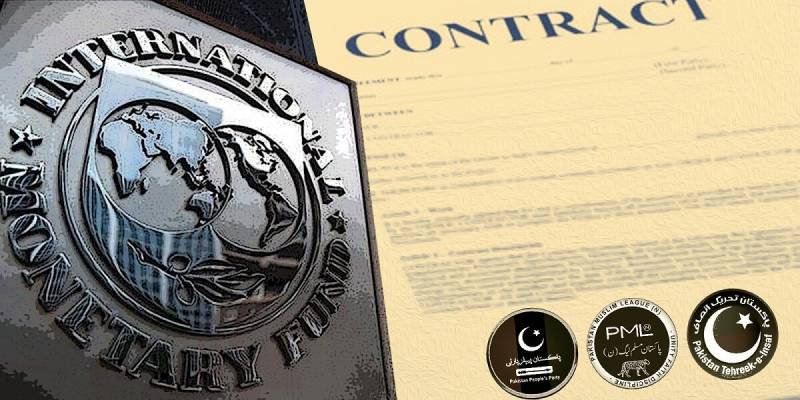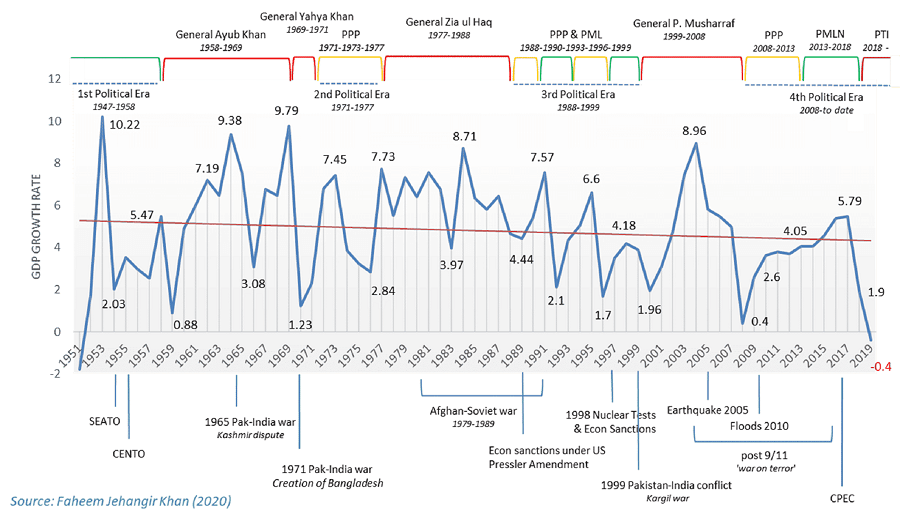
The International Monetary Fund (IMF) has reached out to the main political parties, including the Pakistan Tehreek-e-Insaf (PTI), leading up to the upcoming general elections in the search for assurances. Their objective is to secure backing for the policies associated with the new nine-month $3 billion stand-by arrangement (SBA).
The approval for this new deal, which is vital for stabilizing Pakistan's economy, will be presented to the IMF board on July 12. It is worth noting that previous governments have faced challenges in adhering to IMF agreements, which complicated the implementation of the program that ended on 30 June. Additionally, the upcoming elections adds further complexity as the current agreement will span three successive governments - the incumbent, the caretaker, and newly elected.
The IMF is actively seeking assurances from leaders of both the ruling and opposition parties to ensure commitment to the key objectives and policies of the SBA. Their interest in securing broad political support stems from the desire for consistency and smooth implementation of the program.
READ MORE: Breakthrough With IMF To Provide Some Economic Relief
The program is deemed critical for Pakistan as the country has faced multiple challenges, including the risk of default and downgrades by international ratings agencies. These challenges reflect the economic state of the country, which has been affected by political turmoil and frequent leadership changes.
A surprising first or a standard policy?
The Fund's latest move has stirred a debate, especially after its meeting with former prime minister Imran Khan and members of his party. Supporters of Khan are pointing to his overwhelming popularity as the reason the Fund was drawn to his assurances. However, this is essentially part of the IMF's standard operating procedure.
In 2019, nearly a year after signing its largest ever loan package of $57 billion, the Fund met with the Argentinian opposition leader to discuss loan terms, in the backdrop of the upcoming presidential elections in the same year.
Back at home, however, the IMF calling on political parties has been a rarity and not a case for almost the past 30 years.
READ MORE: The Road To IMF
Since 1994, there has not been a requirement of this nature, which can be attributed to the fact that all programs since then have been signed at the onset of a government's tenure. However, it is worth noting that this marks the first occurrence, since 1988, of a fresh agreement being signed in the final weeks of a government's tenure.
https://twitter.com/KhurramHusain/status/1677296334267637761
Flawed intentions
The current crisis in Pakistan's economy can be attributed in part to the irresponsible fiscal behavior of successive governments. Each administration has prioritized short-term political gains over long-term economic sustainability, leading to the current state of affairs.
The problems began to emerge during the last year of the PTI government, with inflation rising and the fiscal deficit increasing. The government sought assistance from the IMF through a bailout package, but as Imran Khan's ouster became inevitable, the PTI administration torpedoed the deal by announcing an unfunded energy subsidy, leaving incoming officeholders to face the consequences.
READ MORE: Market Sentiment Improves After IMF Deal, But Pakistan’s Economy Remains Vulnerable
However, the situation was similar when the PTI took office in 2018. They inherited a massive fiscal deficit of approximately $20 billion and a currency crisis from the previous PML-N government.
Despite the current finance minister’s promises, the incumbent government has seemed clueless about managing the economy, and the situation has only worsened due to their pseudo-economics.

Graph Source: PIDE
However, this time political consensus is crucial. Experts have reiterated that the current program acts as bridge financing, and a new IMF program will be needed immediately afterward. Further, the possibility of obtaining a new programme greatly hinges on the success of the current SBA.
"The SBA with the IMF doesn't solve any of our problems except for giving us more time for making up our mind on how we want to restore debt sustainability. It also allows enough time for the new government to take control before deciding on the way forward. However, as SBA nears its end in few months time, our debt repayment issues will surface once again," remarked, senior economist, Dr Ahmed Jamal Pirzada.
The approval for this new deal, which is vital for stabilizing Pakistan's economy, will be presented to the IMF board on July 12. It is worth noting that previous governments have faced challenges in adhering to IMF agreements, which complicated the implementation of the program that ended on 30 June. Additionally, the upcoming elections adds further complexity as the current agreement will span three successive governments - the incumbent, the caretaker, and newly elected.
The IMF is actively seeking assurances from leaders of both the ruling and opposition parties to ensure commitment to the key objectives and policies of the SBA. Their interest in securing broad political support stems from the desire for consistency and smooth implementation of the program.
READ MORE: Breakthrough With IMF To Provide Some Economic Relief
The program is deemed critical for Pakistan as the country has faced multiple challenges, including the risk of default and downgrades by international ratings agencies. These challenges reflect the economic state of the country, which has been affected by political turmoil and frequent leadership changes.
A surprising first or a standard policy?
The Fund's latest move has stirred a debate, especially after its meeting with former prime minister Imran Khan and members of his party. Supporters of Khan are pointing to his overwhelming popularity as the reason the Fund was drawn to his assurances. However, this is essentially part of the IMF's standard operating procedure.
IMF's interest in securing broad political support stems from the desire for consistency and smooth implementation of the program
In 2019, nearly a year after signing its largest ever loan package of $57 billion, the Fund met with the Argentinian opposition leader to discuss loan terms, in the backdrop of the upcoming presidential elections in the same year.
Back at home, however, the IMF calling on political parties has been a rarity and not a case for almost the past 30 years.
READ MORE: The Road To IMF
Since 1994, there has not been a requirement of this nature, which can be attributed to the fact that all programs since then have been signed at the onset of a government's tenure. However, it is worth noting that this marks the first occurrence, since 1988, of a fresh agreement being signed in the final weeks of a government's tenure.
https://twitter.com/KhurramHusain/status/1677296334267637761
Flawed intentions
The current crisis in Pakistan's economy can be attributed in part to the irresponsible fiscal behavior of successive governments. Each administration has prioritized short-term political gains over long-term economic sustainability, leading to the current state of affairs.
The problems began to emerge during the last year of the PTI government, with inflation rising and the fiscal deficit increasing. The government sought assistance from the IMF through a bailout package, but as Imran Khan's ouster became inevitable, the PTI administration torpedoed the deal by announcing an unfunded energy subsidy, leaving incoming officeholders to face the consequences.
READ MORE: Market Sentiment Improves After IMF Deal, But Pakistan’s Economy Remains Vulnerable
However, the situation was similar when the PTI took office in 2018. They inherited a massive fiscal deficit of approximately $20 billion and a currency crisis from the previous PML-N government.
Despite the current finance minister’s promises, the incumbent government has seemed clueless about managing the economy, and the situation has only worsened due to their pseudo-economics.

Graph Source: PIDE
However, this time political consensus is crucial. Experts have reiterated that the current program acts as bridge financing, and a new IMF program will be needed immediately afterward. Further, the possibility of obtaining a new programme greatly hinges on the success of the current SBA.
This marks the first occurrence, since 1988, of a fresh agreement being signed in the final weeks of a government's tenure
"The SBA with the IMF doesn't solve any of our problems except for giving us more time for making up our mind on how we want to restore debt sustainability. It also allows enough time for the new government to take control before deciding on the way forward. However, as SBA nears its end in few months time, our debt repayment issues will surface once again," remarked, senior economist, Dr Ahmed Jamal Pirzada.

